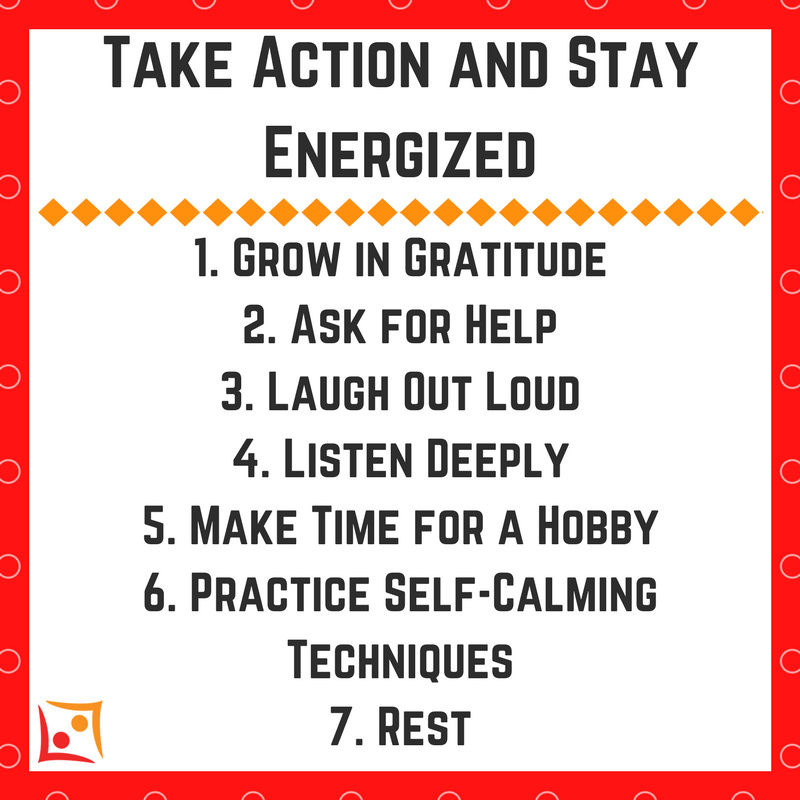Marlize Adair, Administrative Coordinator
 We all have specific times throughout the year that are marred by stress and anxiety. For me, it is the holidays and end-of-year preparations. When I was a teacher, this was also the time that I felt burned-out and ready for a break.
We all have specific times throughout the year that are marred by stress and anxiety. For me, it is the holidays and end-of-year preparations. When I was a teacher, this was also the time that I felt burned-out and ready for a break.
Research
If you are an educator you might feel affirmed to know that researchers have found that the time teachers, especially new teachers, feel is the hardest time for them is from the end of October to Thanksgiving break. Not only is the rush and excitement for the new school year waning but as a teacher, you might realize you don’t see the impact of all your hard work in the classroom yet.
Resilience and Self-Awareness
When you recognize the signs of burnout – physical and mental exhaustion – you might need to step back and evaluate the situation. Research suggests, once you recognize the indicators of burnout, you can boost your emotional resilience, and draw some boundaries around you in order to tend to your physical and emotional well-being.
Beat End-of-Year Burn Out

- Grow in gratitude: Appreciate the small things in life!
- Ask for help: Asking for help is not a sign of weakness, but rather a sign that you know your limits. Self-Awareness is something adults, youth, and children learn throughout their lifetime.
- Laugh out loud: Having a sense of humor is always healthy! It not only alleviates stress, but it also evaluates our sense of well-being.
- Listen deeply: Social-Awareness is probably one of the most important things we can learn! Listening to others and having the ability to empathize with each other will increase your emotional intelligence by recognizing the emotions of others.
- Make time for a hobby: Investing yourself in something you love will fill your sense of pride, develop confidence in your self-worth, and create a general feeling of contentment.
- Practice self-calming techniques: What soothes you? Taking deep breathes? Meditating? Again, self-awareness is a very big part of social and emotional learning. Recognizing what calms you and resetting your body is important!
- Rest: How can one little word have so much meaning behind it? Making sure you are well rested will ensure both mental and physical health.
Teaching yourself or young children to be resilient by putting resilience on display will not only help stave off stress but will also model a life approach throughout their learning process.
